Mark Frenden’s GATE CRASHERS logo and title treatment is 90% satisfying. Because the red title is off-balance and a bit oddball— it doesn’t quite stand up to the big funny ape. And we don’t really need the Oscar statuette. Am I wrong?
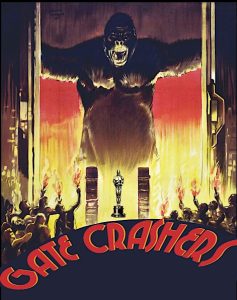
Mark Frenden’s GATE CRASHERS logo and title treatment is 90% satisfying. Because the red title is off-balance and a bit oddball— it doesn’t quite stand up to the big funny ape. And we don’t really need the Oscar statuette. Am I wrong?

Daniel Craig’s floppy blonde mane, the pink wristband, the black leather jacket, the ruffian black jeans, the dangling shades, the forest of short white whiskers…exquisite. And in precisely the right way, director Luca Guadagnino offers his cultured professorial outfit with just a touch of flare. (A world of difference between white sneakers and whitesides.) But Drew Starkey, whose supporting Queer performance perfectly complements the Oscar-worthy Craig, needs to re-think the aqua blue. Too much of a young man’s statement…turn it down.
Whereas fasting, sobriety and abstinence combine for a much rarer aesthetic — the precise opposite of debauch.
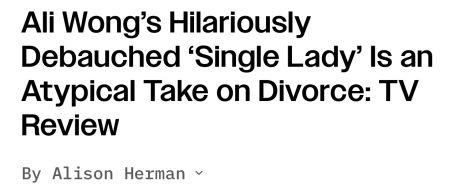

HE to Luca Guadagnino: Wow…what a fascinating psychedelic space-out…a dig-down dreamscape thing…the sexuality is there, obviously, but subordinate to the spiritual current, the exotic atmosphere, Daniel Craig and Drew Starkey’s truly fascinating performances, the nimble editing, the South American jungle yage ** scenes….
The trippy mystical vibe kinda sneaks up on you…it’s one of the most fascinating, out-there films about vulnerability, transformative intimacy and emotionality that I’ve ever seen…amazing!
Seriously…hats off to you and yours. I was blown away.
Queer is a truly fascinating mood piece and space-out…a film has never taken me to a realm like this…an amazing reach, amazing combustion…and when the William Tell moment happens at the end…God!! It explores and delivers so much more than I expected.
Queer is much more transformative than Call Me By Your Name…it may be your best film ever, or it may be your most out-there or whatever…I’m not sure how to label it but Craig’s performance is staggering…purely a matter of heart and spirit and twitchy emotion…all I know is that he’s uncovered something fresh and alive…really something else.
The Venice Film Festival reviews kind of missed the boat, I think. I mean, Queer is about so much more than just “Lee” and his sexuality and the atmosphere of early ‘50s Mexico City…I truly adored the cinematography, editing, musical choices, the miniature models, the Cinecitta sound stage recreations of Mexico City.
I didn’t even recognize Leslie Manville, who’s really out-there as the jungle medicine woman. And dear effing God, what has happened to poor Jason Schwartzman?…he’s gained at least 50 or 60 pounds!!..what’s happened to Max Fischer? (Wait…I’m told he’s wearing a fat suit.)
I really didn’t see this coming. Talk about your October surprise. Queer is a wake-up thing. It delivers a feeling of inwardness, extra-ness.
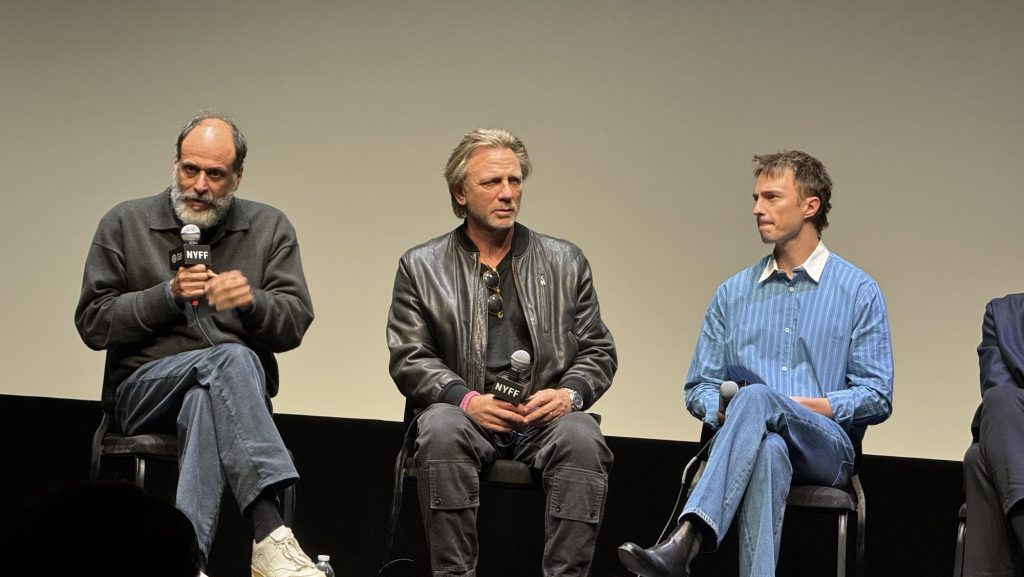
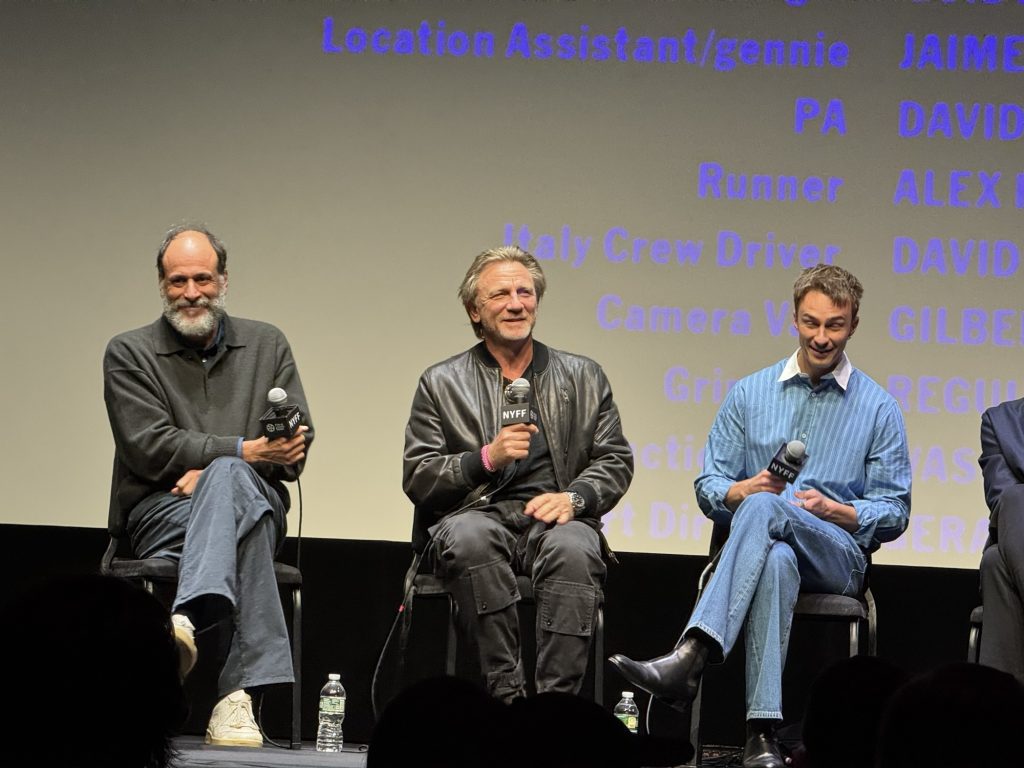
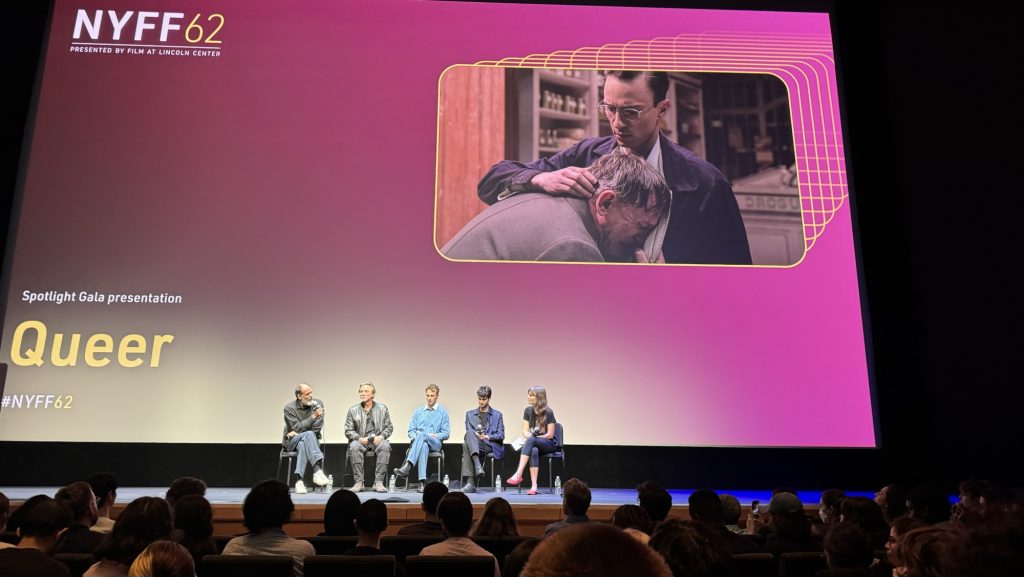
** pronounced “yah-hay”
Don’t laugh —- in a 46-year-old review of The Deer Hunter the legendary Andrew Sarris used the” above term, and he wasn’t called a homophobe for doing so. All I know is that it won’t just be Daniel Craig “going homo” inside Avery Fisher Hall this afternoon — HE will be submitting as well.
Not since Taxi Zum Klo (‘81)…I’ll also be catching Payal Kapadia’s All We Imagine As Light sometime around 6 pm.
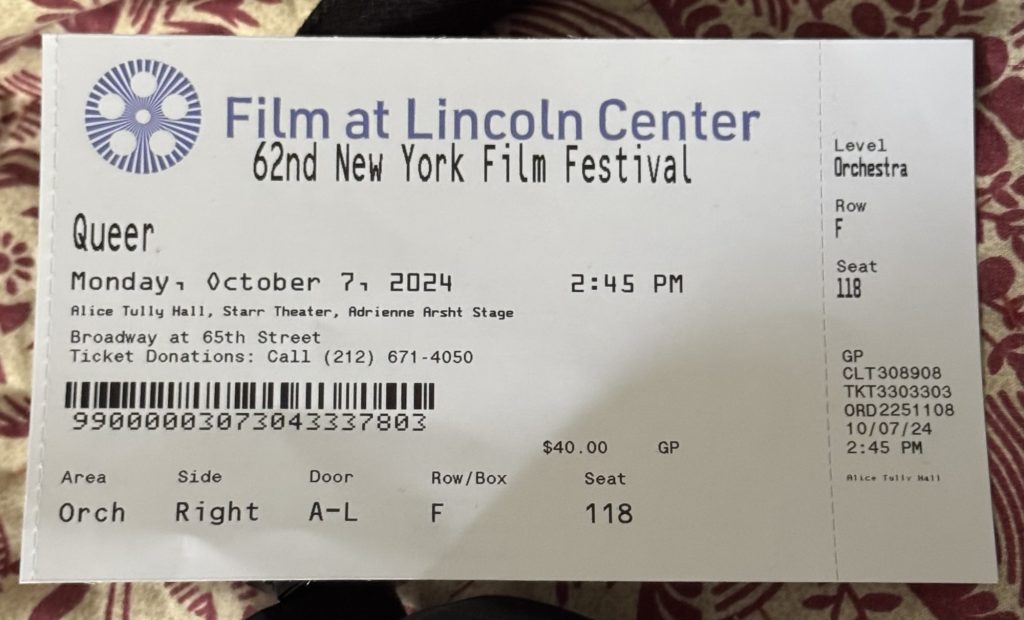
Or at least is seemingly open to Howard Stern guiding her into a hair-down mode during their Tuesday afternoon (10.8, 1 pm) encounter.
This would represent a departure, of course, as Harris and her team have been carefully control-freaking the campaign thus far. Kamala is not Pete Buttigieg — she hasn’t the confidence for improv or thinking on her feet in a free-associative way. But the Stern interview should prove interesting.

Friendo who attended last night’s Acadeny screening of Sean Baker’s Anora:
“Unmistakably enthusiastic audience response. Particularly for lead actress Mikey Madison. And Mark Eidelstein, [who plays] the young Russian playboy.
“But the house was only about a quarter full. At an official Academy screening. Disappointing for a major Cannes winner.”

HE to friendo: “It’s fairly difficult to go broke by under-estimating the sophistication of Academy members. They’re always slow to respond to edgy, smaller-scaled films.
“I’ve seen it twice and can’t wait until my next viewing. No other 2024 film has gotten me off like Anora. I laughed like a hyena, and I’m generally an LQTM guy. I believe it to be the freshest and most confident, most brilliantly constructed powder-keg dramedy in years.
“It takes a while to get rolling but after the 55-or 60-minute mark it pays off like a slot machine
“The word of mouth has been rhapsodic since the Cannes debut and you’re telling me the Academy theatre was only one-quarter full last night? Are Academy members really that slow to wake up? That slow to smell the coffee?”
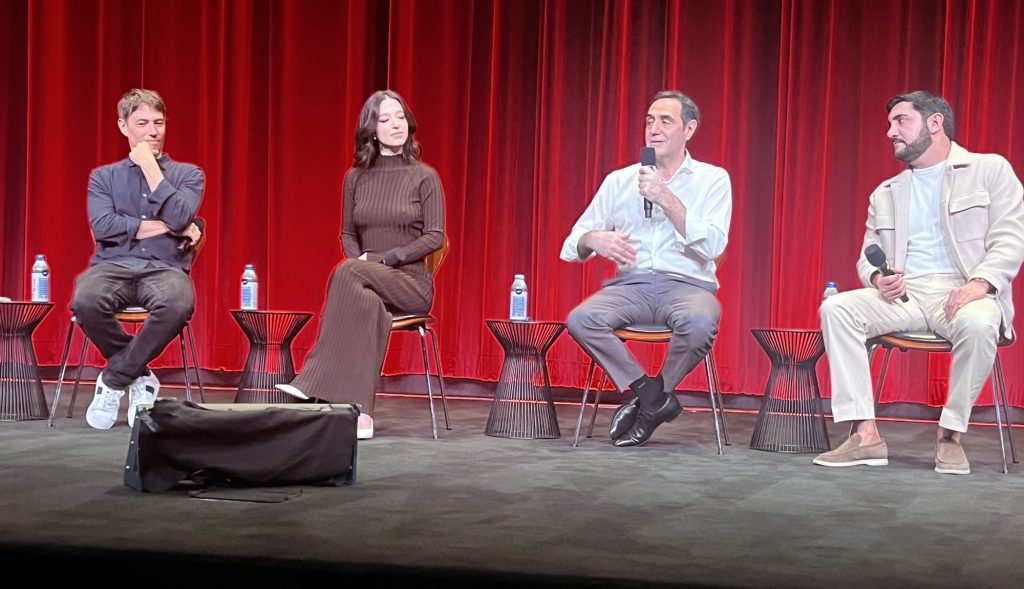
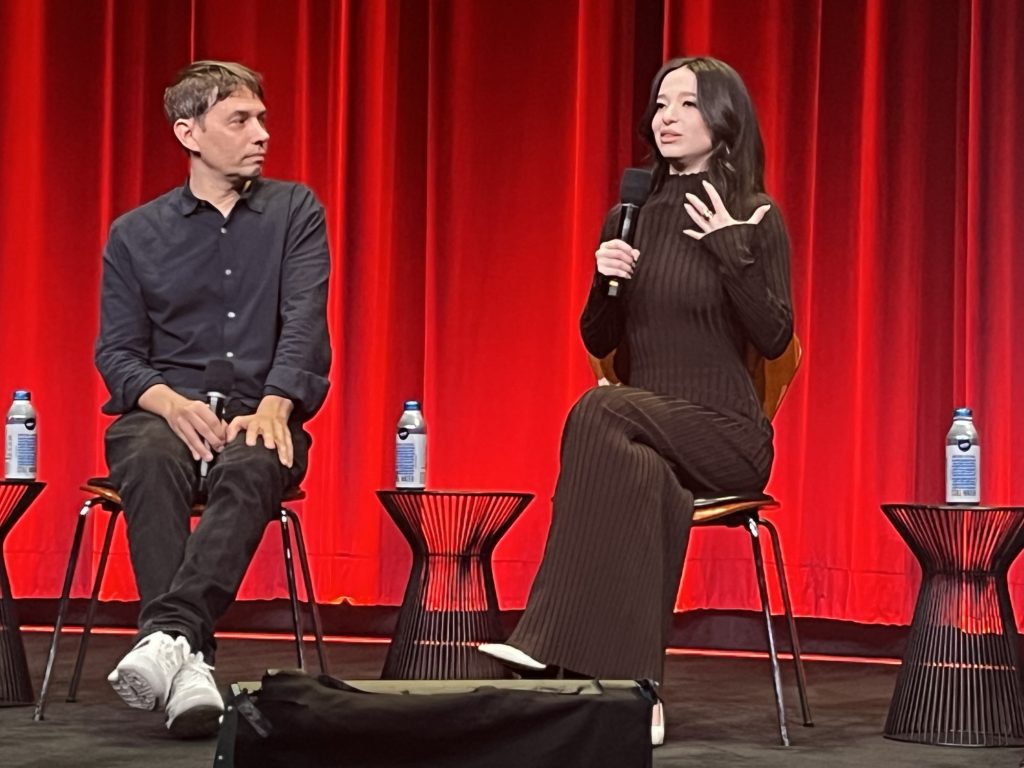

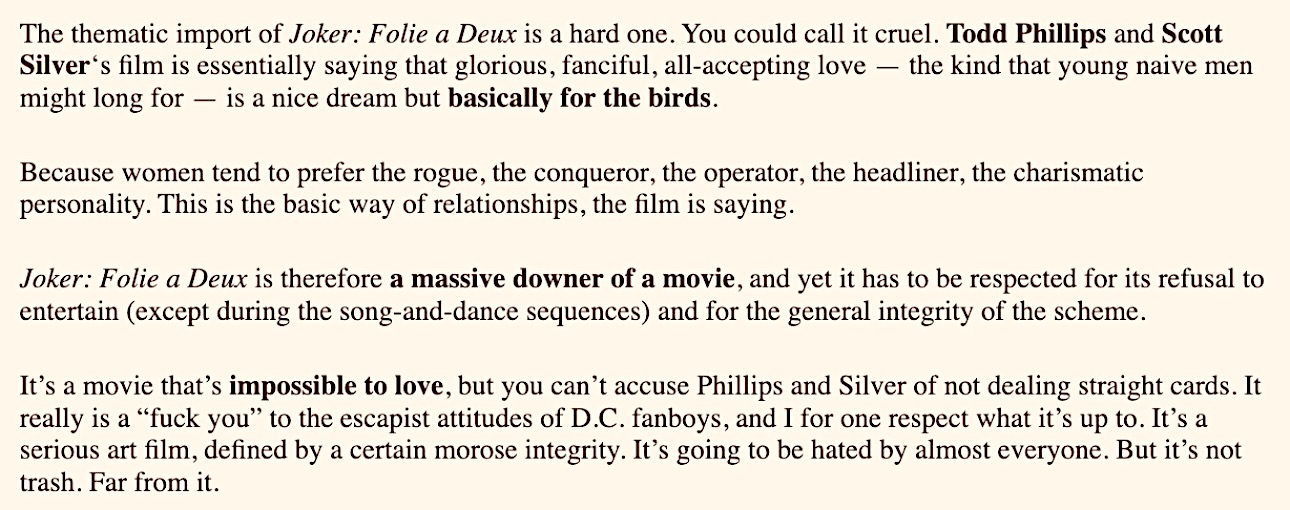
@jasonthechao I’ll post deeper dissections #joker #jokerfolieadeux #filmtok #movies ♬ original sound – jasonthechao
@jasonthechao Replying to @jasonthechao #jokerfolieadeux #joker #filmtok #movies ♬ original sound – jasonthechao
Sasha Stone and I are hastily assembling an award-season spitball forum, callled GATE CRASHERS. It’s kind of an anti-Gold Derby thang. Only journos and filmmakers of character, no whores or corporate ass-kissers, no raising damp fingers to the wind.
We’ll have the participation of least three or four anonymous filmmakers plus Chris Gore, Jeff Sneider, Jordan Ruimy, myself, Sasha, Bill McCuddy, Ed Douglas, and one or two more. 10 or 12 people thus far. We’re hoping to land at least two or three women of consequence besides Sasha.
Sneider will post a special link in advance with each updated posting. Ruimy will also post the chart.
Participants will just have to fill out a dropdown menu form with their gut predictions every two weeks. They won’t have to have seen every last film — they can spitball, fantasize and instinctually project like the Gold Derby members do. We’d all be taking it one step at a time.
The great Mark Frenden is assembling a King Kong logo as we speak.
We’re looking to get rolling on this fairly soon.
All hail Payal Kapadia’s All We Inagine As Light!
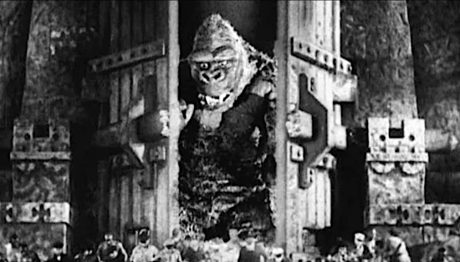
The 2024 woke manual says that characters in mainstream films aren’t allowed to point to negative consequences due to weight issues. Because there are no negative consequences from same — sporting a bulky bod is a lifestyle choice, not a health issue. Such judgments were allowed 29 years ago when Crimson Tide was released, but no longer. Understood?
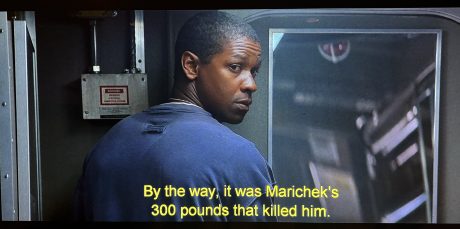
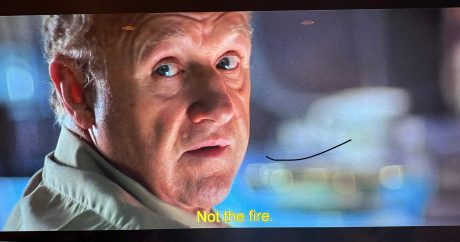
…I am a confirmed, committed, dyed-in-the-wool upper level guy. I like to glance at the big blue-white sky and the deep blue Hudson as I’m crossing over. The lower level feels too confining.
